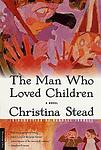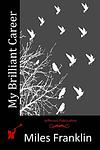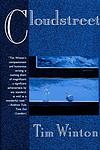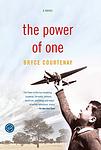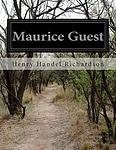The Greatest Mexican, Australian Books of All Time
Click to learn how this list is calculated.
This list represents a comprehensive and trusted collection of the greatest books. Developed through a specialized algorithm, it brings together 300 'best of' book lists to form a definitive guide to the world's most acclaimed books. For those interested in how these books are chosen, additional details can be found on the rankings page.
Genres
Countries
Date Range
Reading Statistics
Click the button below to see how many of these books you've read!
Download
If you're interested in downloading this list as a CSV file for use in a spreadsheet application, you can easily do so by clicking the button below. Please note that to ensure a manageable file size and faster download, the CSV will include details for only the first 500 books.
Download-
1. Pedro Páramo by Juan Rulfo
This novel transports readers to the ghost town of Comala, where the protagonist, Juan Preciado, ventures in search of his estranged father, Pedro Páramo. Upon arrival, he encounters a realm where the living and the dead coexist, and through fragmented narratives and spectral encounters, the story of Pedro Páramo's life, his love, tyranny, and the curses that plague the town unfolds. The novel's innovative structure, blending memory and reality, has cemented its status as a pioneering work of magical realism, offering a haunting exploration of power, guilt, and the inescapable echoes of the past.
-
2. The Man Who Loved Children by Christina Stead
This novel explores the complex dynamics of the Pollit family, focusing on the relationship between the egotistical patriarch Sam and his idealistic daughter Louie. Set in Washington D.C. during the 1930s, the story provides a stark portrayal of a dysfunctional family, where Sam's delusional optimism and insensitivity clash with Louie's growing disillusionment and rebellion. The narrative delves into themes of family conflict, emotional abuse, and the struggle for individual identity within the confines of family expectations.
-
3. The Thorn Birds by Colleen McCullough
"The Thorn Birds" is a sweeping family saga that spans three generations of the Cleary family, set against the backdrop of the Australian outback. It focuses on the forbidden love between the beautiful Meggie Cleary and the family's priest, Father Ralph de Bricassart. The novel explores themes of love, religion, and ambition, as Meggie and Ralph struggle with their feelings for each other and the choices they must make.
-
4. Voss by Patrick White
Set in 19th-century Australia, the novel follows a German explorer, Voss, as he leads a doomed expedition into the outback. Parallel to this, Voss develops a romantic relationship with Laura Trevelyan, a young woman he meets before his departure. Despite their physical separation, their spiritual and emotional connection deepens as Voss's journey becomes increasingly perilous. The narrative explores themes of obsession, the human condition, and the dichotomy between civilization and wilderness.
-
5. Schindler's List by Thomas Keneally
The book tells the true story of a German businessman who saves more than a thousand Polish Jews during the Holocaust by employing them in his factories. The protagonist's transformation from a greedy high living war profiteer to a savior of lives forms the crux of the narrative. It offers a chilling yet inspiring account of the horrors of the Holocaust, human resilience, and the power of one individual to make a significant difference.
-
6. Like Water For Chocolate by Laura Esquivel
This novel is a romantic, magical realism tale set in turn-of-the-century Mexico. It chronicles the life of Tita, the youngest daughter in a traditional Mexican family, who is forbidden to marry due to a family custom that mandates the youngest daughter must care for her mother until death. Tita falls in love with Pedro, who in turn marries her elder sister to stay close to her. The story is uniquely structured around the twelve months of the year, each beginning with a traditional Mexican recipe. The protagonist's emotions become infused with her cooking, leading to strange effects on those who consume her culinary creations.
-
7. The Death of Artemio Cruz by Carlos Fuentes
The novel revolves around the life of a self-centered Mexican media mogul, Artemio Cruz, who is on his deathbed. As he reflects on his past, the narrative shifts between first, second, and third person perspectives, exploring different stages of Cruz's life from his impoverished childhood, his participation in the Mexican Revolution, his ruthless pursuit of power, and his eventual downfall. The book is a critique of the corruption and moral decay in Mexican society following the Revolution.
-
8. Oscar and Lucinda by Peter Carey
"Oscar and Lucinda" is a novel that tells the story of two unconventional individuals, Oscar and Lucinda, who meet on a ship going to Australia in the mid-19th century. Oscar, a young English clergyman, and Lucinda, a teenage Australian heiress, bond over their shared love of gambling. Their mutual obsession leads to a high-stakes wager that will have lasting consequences for both of them. The novel explores themes of love, faith, and obsession against the backdrop of Victorian-era England and Australia.
-
9. The Female Eunuch by Germaine Greer
This book is a seminal feminist text that explores the oppression of women in society. It critiques the traditional roles and expectations of women in the mid-20th century, arguing that societal norms and conventions force women into a secondary, submissive role, effectively castrating them. The book encourages women to reject these norms and to embrace their own sexual liberation, arguing for the need for a revolution in the way women perceive themselves and their place in society.
-
10. True History of the Kelly Gang by Peter Carey
This historical novel is a fictionalized account of the life of Australian outlaw Ned Kelly, told in the form of a journal written to his daughter. The narrative explores Kelly's life from childhood, his family's struggles with poverty and the law, his involvement in horse thievery, and his eventual formation of the Kelly Gang. The story culminates with the gang's infamous standoff with the police at Glenrowan, providing a humanizing perspective on a figure often portrayed as a ruthless criminal.
-
11. The Burning Plain and Other Stories by Juan Rulfo
"The Burning Plain and Other Stories" is a collection of short narratives set in the harsh rural areas of Mexico, depicting the brutal realities of peasant life. The stories are filled with characters who are haunted by their past, living in extreme poverty, and often meeting violent ends. The book is renowned for its stark, realistic portrayal of life and its exploration of the human capacity for hope and survival in the face of despair.
-
12. The Underdogs by Mariano Azuela
"The Underdogs" is a novel set during the Mexican Revolution, depicting the conflict from the perspective of the peasants who fought in it. The story follows the journey of a poor, illiterate Indian named Demetrio Macias, who becomes a reluctant leader in the rebellion against the federal government. The narrative explores the brutality and chaos of war, the corruption of power, and the often futile nature of rebellion, painting a grim picture of the human cost of revolution.
-
13. The Labyrinth of Solitude by Octavio Paz
This book is a profound and vivid exploration of Mexico's character, culture, and identity. The author delves into Mexico's history, politics, and psyche, examining the country's deep solitude and its impact on the national character. The book provides a comprehensive analysis of Mexican society, its myths, symbols, and rituals, offering a deep understanding of the Mexican people's unique way of perceiving the world. It also discusses the influence of the United States on Mexico and the complex relationship between the two countries.
-
14. The Transit of Venus by Shirley Hazzard
The novel follows the lives of two orphaned Australian sisters, Caroline and Grace Bell, who move to England in the post-World War II era. The story revolves around their relationships, particularly Caroline's complex and often tragic love life. The narrative is filled with themes of love, fate, time, and the intricate complexities of human relationships, all set against the backdrop of significant historical events.
-
15. My Brilliant Career by Miles Franklin
The book follows the story of a headstrong and ambitious young woman named Sybylla, who dreams of escaping her rural life and becoming a writer. Set in late 19th century Australia, Sybylla faces societal expectations and struggles with her own desires for independence and self-expression. As she navigates through love, family, and societal pressures, Sybylla's journey becomes a reflection of the challenges faced by women in a patriarchal society, ultimately questioning the sacrifices one must make to pursue their dreams.
-
16. Cloudstreet by Tim Winton
"Cloudstreet" is a sweeping family saga set in post-World War II Australia, following two families, the Pickles and the Lambs, who come to live together in a large, ramshackle house on Cloud Street over two decades. The story explores their struggles, triumphs, and the ways they are haunted and blessed by a mysterious spiritual presence. The novel is a celebration of endurance, unity, and the many forms of love, set against the backdrop of a changing Australia.
-
17. The Fortunes Of Richard Mahony by Henry Handel Richardson
"The Fortunes of Richard Mahony" is a trilogy that chronicles the life of an Irish-born man who emigrates to Australia during the gold rush of the 1850s. The narrative follows his journey, detailing his struggles with mental health, the challenges of marriage, and the difficulties of raising a family in a foreign land. The story provides a deep insight into the complexities of human nature, the societal norms of the time, and the challenges faced by immigrants.
-
18. The Tree of Man by Patrick White
This novel tells the story of Stan Parker, an ordinary and hardworking man living in the Australian outback. The narrative chronicles his life, including his marriage to Amy, the birth of their two children, and the various struggles they face such as financial hardship, natural disasters, and the challenges of rural life. The book provides a deep and introspective look into the human condition, exploring themes of love, death, faith, and the search for meaning.
-
19. The Power of One by Bryce Courtenay
This novel follows the life of a young English boy named Peekay who grows up in South Africa during the 1930s and 1940s. Despite facing bullying, racial segregation, and the hardships of World War II, Peekay remains resilient and determined to follow his dream of becoming a world-class boxer. Along his journey, he encounters various mentors who teach him about survival, love, and the power of one person to make a significant difference in the world.
-
20. Cartucho And My Mother's Hands by Nellie Campobello
"Cartucho And My Mother's Hands" is a poignant collection of vignettes that offer a child's perspective on the Mexican Revolution. Through a series of short, vivid sketches, the narrative captures the brutality and humanity of the conflict as witnessed by the young protagonist. The work is both a personal memoir and a tribute to the resilience of women, particularly the author's mother, whose strength and tenderness are symbolized by her hands. The book blends the innocence of childhood with the harsh realities of war, providing a unique and emotionally resonant account of historical events that shaped Mexico's national identity.
-
21. Maurice Guest by Henry Handel Richardson
This novel is a compelling exploration of obsessive love set against the backdrop of a German conservatory in the early 20th century. It follows the story of an Englishman, who, aspiring to become a musician, moves to Leipzig to study. There, he becomes infatuated with an Australian woman, a fellow student, who is emotionally entangled with another man. The narrative delves deep into the complexities of human emotions, the destructive nature of unrequited love, and the protagonist's descent into obsession. Through its vivid portrayal of characters and setting, the book offers a poignant examination of the darker aspects of love and the human psyche.
-
22. The Getting Of Wisdom by Henry Handel Richardson
The novel is a coming-of-age story set in late 19th-century Australia, following the experiences of Laura Rambotham, a spirited and intelligent country girl sent to a prestigious Melbourne boarding school. Struggling with the rigid social hierarchies and the expectations placed upon her, Laura faces numerous challenges and humiliations, but she remains determined to find her place in the world. Through her journey, the book explores themes of education, social class, friendship, and the quest for personal identity, ultimately illustrating the complexities and trials of growing up and the bittersweet acquisition of wisdom.
-
23. Schindler's Ark by Thomas Keneally
The book is a historical novel based on the true story of a German industrialist who becomes an unlikely humanitarian amid the barbaric Nazi reign. When he witnesses the horrors inflicted upon the Jews, he is moved to save as many as he can by employing them in his factory. His actions, driven by courage and compassion, lead to the salvation of over a thousand Jewish workers from certain death in the Holocaust. The narrative explores themes of morality, survival, and the capacity for good in the face of overwhelming evil, as the protagonist navigates the complexities of war and the human spirit.
-
24. The Road from Coorain by Jill Ker Conway
"The Road from Coorain" is a memoir that chronicles the author's journey from her childhood on a remote sheep station in Australia, through her adolescence in war-ravaged Sydney, and finally, to her departure for America. The narrative explores themes of self-discovery, gender roles, and the power of education while providing a vivid portrayal of life in the Australian outback. The memoir also delves into the author's complex relationship with her mother and the impact of her father's death on their family.
-
25. Remembering Babylon by David Malouf
The novel explores the life of a young man who, after being shipwrecked, is raised by Aboriginals in 19th century Australia. After sixteen years, he attempts to reintegrate into European society, but is met with suspicion and hostility due to his adopted culture and lifestyle. The book delves into themes of identity, belonging, and the clash between Aboriginal and European cultures.
Reading Statistics
Click the button below to see how many of these books you've read!
Download
If you're interested in downloading this list as a CSV file for use in a spreadsheet application, you can easily do so by clicking the button below. Please note that to ensure a manageable file size and faster download, the CSV will include details for only the first 500 books.
Download
